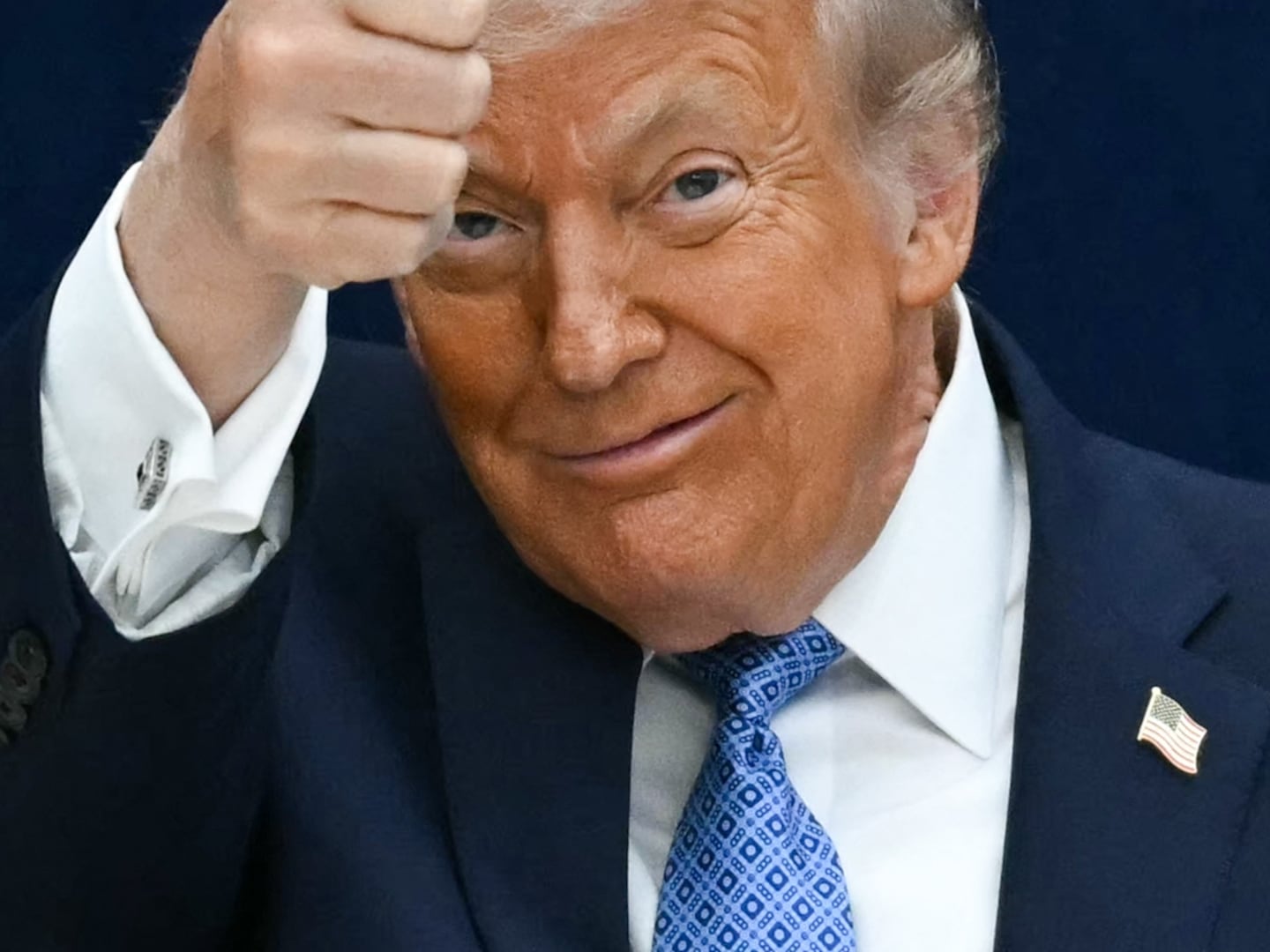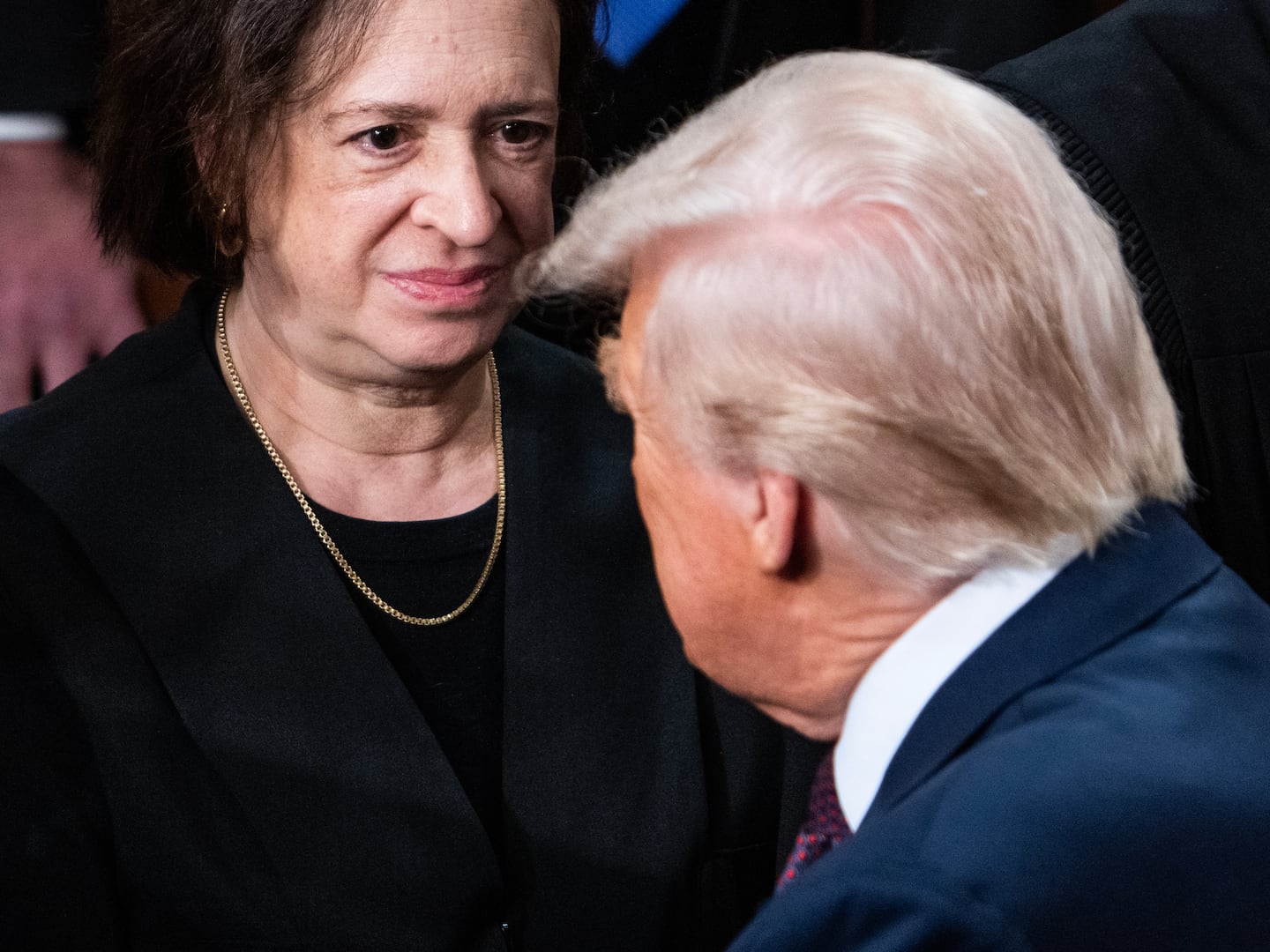Two years after being felled by perhaps the first sex scandal of the social-media era, Anthony Weiner has been born again.
That at least is the conclusion of a pair of polls released this week that find the former congressman leading his rivals in the race to replace Mike Bloomberg as New York City mayor.

According to a Marist poll released late Tuesday, Weiner leads City Council Speaker Christine Quinn—the frontrunner for most of the past year—25 percent to 20 percent. A Quinnipiac University poll out Wednesday gives Weiner a virtual tie with Quinn and 2009 Democratic nominee Bill Thompson.
The primary in this heavily Democratic town—though it hasn’t elected a Democratic mayor since 1989—is September 10, and were Weiner to make it to the runoff two weeks later, it would be one of the most extraordinary comebacks in American political history. After his sexting scandal in 2011, he largely disappeared from view. Conventional wisdom held that the New York tabloids alone would ensure that he never appeared on the public stage again, especially as photographic evidence of Weiner’s indiscretions could be revived at any moment.
The snicker factor has now mostly passed however. Instead, Weiner, who in a New York Times magazine article that served as his de facto campaign launch suggested that his primary reason for running for mayor was an excess of leftover funds in his campaign account, is now barnstorming the city pushing his “Keys to the City,” a 64-part booklet of urban improvement apparently dusted off from his 2005 campaign for mayor.
Earlier polls that showed Weiner competitive with his rivals could be dismissed as a result of higher name recognition brought on by scandal. But with the race now two and a half months away, politicos in New York are facing the possibility that Weiner is all but on the doorstep of entering City Hall.
“His base asset is his personality, and nothing seems to bother him,” said George Arzt, a Democratic consultant. “He is running as if he has nothing to lose.”
Still, obstacles remain. For one thing, Weiner has benefited from a crush of media attention since his reemergence. As Quinn and Thompson battled back and forth over a plan to house a waste-transfer station on the Upper East Side, one had the impression that Weiner would swamp them in coverage just by taking his recycling to the curb.
Part of the reason for his resurgence, however, is his considerable political skills. After surprising many by nearly making the runoff in 2005—in New York, the top two contenders in the primary face off two weeks later if neither makes it past 40 percent—Weiner’s 2013 rollout has been nearly flawless. After his Times magazine piece, he went silent again, allowing anticipation to build. His campaign announcement video was mysteriously posted online and then deleted, generating more excitement. His wife, Huma Abedin, a longtime Hillary Clinton aide, and his toddler son are objects of intense media fascination. At the candidate forums that each contender trudges to night after night, Weiner stands up to answer questions, sleeves rolled up, pounding the air for emphasis.
“You can’t avoid the guy,” seethed an adviser to one rival campaign. “He is more of a presence on the evening news than Barack Obama. The question is, how long does all of this last? There is a novelty to his campaign right now, and novelties, by definition, wear off.”
Plus, though Weiner has maxed out on his fundraising, his past behavior means he must try to tame the Gotham electorate on his own. He has a barebones campaign staff and no endorsements from either of the labor unions that can send voters to the polls or the elected officials whose imprimatur is thought to vault a candidate to a top tier. Women voters will likely turn away from him in the end, and he lacks a base in the primary electorate.
“He has gotten an extraordinary amount of exposure. He is a master at getting press, and all of you in the press are willing participants,” said Doug Muzzio, a professor of political science at Baruch College. “He has to be considered a contender. If those voters [in the polls] are actual voters, he still has to somehow get them out, and you need an organization—and he ain’t got one.”
But somehow Weiner has turned his lack of institutional support into an advantage. In a New York trying to figure out its post-Bloomberg future, a number of political pros believe Weiner has discovered how to meet the moment. And he has been able to portray himself as unencumbered by some of the interest groups linked to the other candidates.
Then there is the matter of the other candidates. All have been on the political scene for a decade or longer. Weiner has provided a jolt to the race, and none have quite figured out how to deal with him.
“No one is making an issue of [Weiner’s past],” said Arzt. “If you had someone on stage talking about the integrity and character required to run this city, it would be a different ball game. Until you see the headline, ‘X Candidate Goes After Weiner,’ the headlines are going to keep being about Weiner.”
At a press conference in the Bronx to announce an initiative to combat child hunger, Weiner, greeting a phalanx of cameras jacketless and sporting aqua-blue pants and a bright green tie, sounded unmoved by the recent surveys.
“I have to say, there are a lot of things that are exactly the same this morning as when I went to bed,” he said. “They are that issues matter and that fighting for the middle class and those struggling to make it, with real ideas about how we are going to move forward, are what citizens want to talk about.”
Asked if he was surprised to find himself in such a strong position, he gave an answer that was vintage Weiner, turning a weakness into a strength.
“For too long in this city, too often these campaigns—and I was in one in 2005—devolve into a contest of who has got what endorsements, or who has what union, or who’s got what power player behind them,” he said. “And I always have tried to do things differently.”






